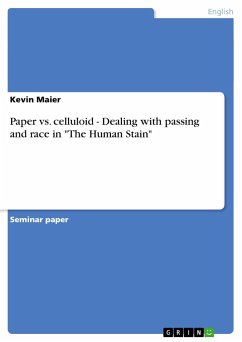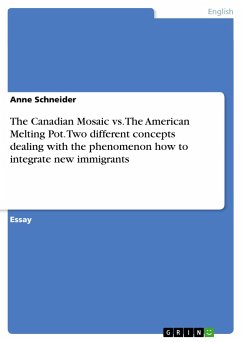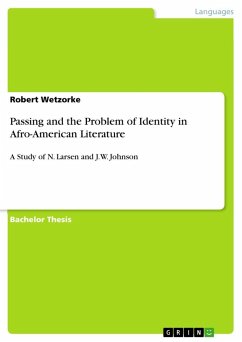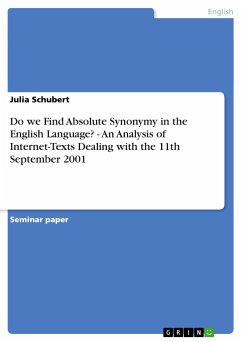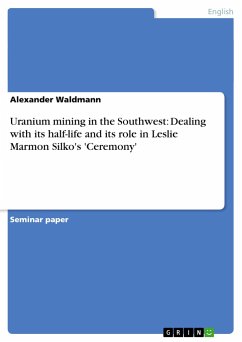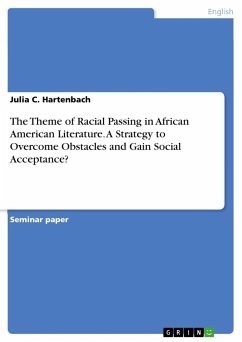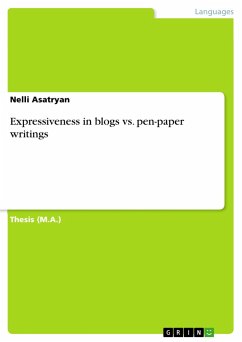Seminar paper from the year 2008 in the subject American Studies - Literature, grade: 1,3, University of Mannheim, course: Narratives of passing in American Literature, language: English, abstract: This term paper will deal with one of these novels that fit both of the aforementioned criteria - it is hard to translate into a screen play and the filmic version did not receive much attention at the box-office with a tanking of only 5,000,000 US$ in the United States (The Human Stain [Box Office]). The subject under discussion is the contemporary novel THE HUMAN STAIN written by Philip Roth and first published in 2000. The novel tells the story of a former college professor, Coleman Silk, who resigns from his position after being misleadingly accused of racism. After the death of his wife he is willed to write a book about his life. At this point, the reader does not know that Coleman Silk is black himself but has been passing for white for over four decades, which tragically turns the whole situation of racial harassment into irony.In the year 2003, thus only three years after the novel had been published, the filmic version was released - an incredibly short period of time for the development, shooting and postproduction of a movie. Was it maybe too short?This term paper primarily focusses upon the passing strand of THE HUMAN STAIN, and, therefore, its adaptation to the big screen. Is it even possible to deliver an appropriate intermedia translation of such a highly complex plot as it is to be found in Philip Roth's novel from 2000? How did the author use race to express the actions and especially the misery of the main character Coleman Silk? In what way did Robert Benton depict Anthony Hopkin's character of the passing figure in the cinematic version? And most importantly, does the translation from book to script, and then finally, to film succeed in the end?
Hinweis: Dieser Artikel kann nur an eine deutsche Lieferadresse ausgeliefert werden.
Hinweis: Dieser Artikel kann nur an eine deutsche Lieferadresse ausgeliefert werden.

